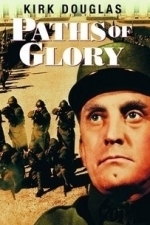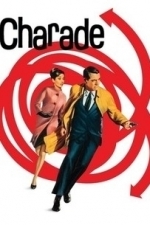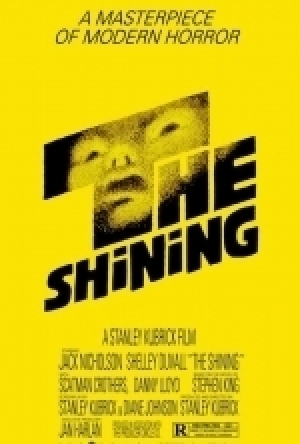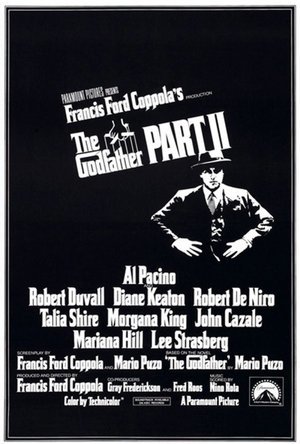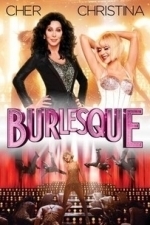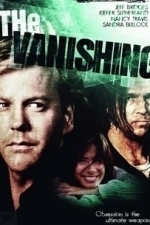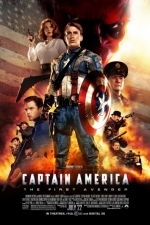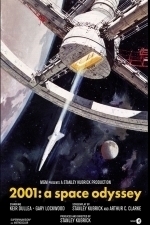Search
Search results
Rod Lurie recommended Paths of Glory (1957) in Movies (curated)
Allison Anders recommended Charade (1963) in Movies (curated)
NerdGeek (155 KP) rated The Shining (1980) in Movies
Oct 13, 2018
Better than I expected
Ok so my fiance is sick, and in bed. So I decided to scroll through Netflix and see what's up. Found this movie, and after all these years, decided to finally give it a shot. So far it's pretty good. Tony kind of freaks me out, but the storyline is pretty decent and it's definitely Stanley Kubrick direction. This is definitely 70s work as well. Which I think actually helps the storyline. I have waited so long to see this movie because I just plain don't like Jack Nicholson. I may lose a few points for That, but I do have to say that he does a good job playing a freak show. And the actor that plays the son? Very good actor. Now if they could make a movie out of Dr Death, my life may be complete.
Bruce Dern recommended The Godfather: Part II (1974) in Movies (curated)
Heather Cranmer (2721 KP) created a post
Jul 31, 2021
Sarah (7800 KP) rated Burlesque (2010) in Movies
Feb 9, 2019
A story that has been done too many times before, and better than this...
The problem with Burlesque is that this is a story that has been done way too many times. Young girl moving to LA to follow her dreams, it’s a tired and overused plot and is just so predictable and dull. There are so many films that have done this so much better. And it is SO long. I can’t believe how long it drones on for. The soundtrack is fairly good but that’s probably one of the only few things going for this, and it isn’t helped by very badly timed lip syncing from everyone other than Cher - Christina Aguilera is the biggest culprit for this, surprisingly really considering her background, but I get very distracted watching a musical where the actions aren’t in time with the music.
Cast-wise, the majority are entirely forgettable with the exception of the usually fabulous Stanley Tucci. Cher is better than expected too, obviously a few years before she overdid it on the plastic surgery. Christina Aguilera isn’t great, she isn’t helped by a terrible script but I don’t really rate her as an actress. Whoever did her makeup should be sacked too, as apart from a few odd scenes where she looks natural, she looks horrendous.
Altogether this is just a boring and entirely lacklustre film, which is pretty bad when it’s a musical!
Cast-wise, the majority are entirely forgettable with the exception of the usually fabulous Stanley Tucci. Cher is better than expected too, obviously a few years before she overdid it on the plastic surgery. Christina Aguilera isn’t great, she isn’t helped by a terrible script but I don’t really rate her as an actress. Whoever did her makeup should be sacked too, as apart from a few odd scenes where she looks natural, she looks horrendous.
Altogether this is just a boring and entirely lacklustre film, which is pretty bad when it’s a musical!
Jack Reynor recommended The Vanishing (1993) in Movies (curated)
LeftSideCut (3776 KP) rated Captain America: The First Avenger (2011) in Movies
Apr 12, 2020
Our introduction to Captain America withing the MCU gets a bad wrap.
I see it labeled fairly regularly as weak entry into the ever expanding saga and I just don't think that's the case.
It's got a solid narrative for a start as we watch Steve Rogers go from frail Regular Joe to bonafide hero who truly believes in fighting for the good of humanity over the course of two hours.
The WWII setting provides a touch of historical reality, collided with the fantasy of the Tesseract, our first glimpse of the now infamous Infinity Stones, and in this narrative, providing Red Skull with cosmically charged weapons the gain the edge in the war with Allied Forces.
The First Avenger has a fantastic cast. Chris Evans is pretty much perfect in the titular role and has played the character solidly for the last 10 years.
Hugo Weaving as Red Skull is an undeniable highlight. He plays the villain with evil glee, and looks so comic book accurate that it hurts. It's a real shame that he has never returned to the role.
The supporting cast is strong as well. Hayley Atwell, Toby Jones, Tommy Lee Jones, Sebastian Stan, Dominic Cooper, and Stanley Tucci are all great, and relish in a tight screenplay.
I do think that the film feels over long at times, although the story being told is undeniably important in the run up to The Avengers.
The effects are mostly decent and still hold up, with an exception here and there, primarily before Steve Rogers goes all buff, but these are small gripes with an otherwise solid origin film.
I see it labeled fairly regularly as weak entry into the ever expanding saga and I just don't think that's the case.
It's got a solid narrative for a start as we watch Steve Rogers go from frail Regular Joe to bonafide hero who truly believes in fighting for the good of humanity over the course of two hours.
The WWII setting provides a touch of historical reality, collided with the fantasy of the Tesseract, our first glimpse of the now infamous Infinity Stones, and in this narrative, providing Red Skull with cosmically charged weapons the gain the edge in the war with Allied Forces.
The First Avenger has a fantastic cast. Chris Evans is pretty much perfect in the titular role and has played the character solidly for the last 10 years.
Hugo Weaving as Red Skull is an undeniable highlight. He plays the villain with evil glee, and looks so comic book accurate that it hurts. It's a real shame that he has never returned to the role.
The supporting cast is strong as well. Hayley Atwell, Toby Jones, Tommy Lee Jones, Sebastian Stan, Dominic Cooper, and Stanley Tucci are all great, and relish in a tight screenplay.
I do think that the film feels over long at times, although the story being told is undeniably important in the run up to The Avengers.
The effects are mostly decent and still hold up, with an exception here and there, primarily before Steve Rogers goes all buff, but these are small gripes with an otherwise solid origin film.
BankofMarquis (1832 KP) rated 2001: A Space Odyssey (1968) in Movies
Mar 4, 2018
Groundbreaking Special Effects (1 more)
Music
Truly...a masterpiece
Over the years, many, many words have been written and said about the 1968 Stanley Kubrick opus, 2001: A SPACE ODYSSEY, but after re-watching it, there is only 1 word I would write about it...
MASTERPIECE
I have a long history with this film. My father took me to it as a 7 year old. I was intrigued by the Sci-Fi special effects, but mostly liked the monkeys at the beginning. I then saw it again as a college student in the early 1980's and was "really into" (for obvious reasons) the psychedelic special effects at the end. Later...in the early 1990's, during my Arthur C. Clark phase, I read the book and then re-watched the film and my understanding of what was happening on the screen gelled and, consequently, my fascination and respect for the themes and scope of 2001 opened up new doors of understanding. I think I have seen it another 4 or 5 times since then and have appreciated it in different ways each time.
For this viewing, I walked away with a sense of awe of the sheer craftsmanship and audacity that Kubrick put up on the screen. The scope of the project in 1968 was (I'm sure) daunting with a subject matter that was just outside of normal vision, so for Kubrick to get a studio to o'k this film is mind-boggling to me.
But...how does it stack up as a film? Very well, indeed.
Told in 4 parts, 2001: A SPACE ODYSSEY tells the tale of mankind's evolution from ape-man to space explorers and the mysterious, monolithic aliens who help mankind advance along this line.
In the hands of the great Stanley Kubrick, 2001 dazzles with pure visionary visuals, exploding heretofore unseen images on the screen. Showing us what could be possible in outer space visuals (not just paper plates hung on a wire against a star background). The film is full of Kubrick hallmarks - meticulously staged and choreographed scenes, stark colors - mostly one color with a dab of another color across the screen, and long scenes where not much dialogue takes place, but what is said (or not said) in the pauses speaks volume. Some would call this type of film making boring (and I have accused other filmmakers who have attempted this as boring and pretentious), but in the hands of Kubrick, this film is mesmerizing and continuously fascinating.
The first 20 minutes of the film - the DAWN OF MAN portion - and the last 20 minutes - the JUPITER AND BEYOND THE INFINITE portion - are both dialogue-free. Kubrick let's the action and visuals speak for themselves. In between are THE MOON portion, which really serves as the audience introduction into the style and substance of the film, the wonderfully, Oscar winning special effects set upon a backdrop of classical music (who can hear Also sprach Zarathustra and not think of 2001)?
It is during the 3rd - and most famous - portion of this film that a viewer will either engage or disengage with this film. This is the famous HAL 9000 portion of the film where 2 astronauts end up battling with a increasingly unstable artificial intelligence on a journey to Jupiter. It is here where Kubrick, I feel, is at his best. The long, uncomfortable silences and the glances between the two astronauts (played wonderfully by the oft-praised Keir Dullea and the underrated Gary Lockwood) leads to a sense of dread that is very reminiscent of Alfred Hitchcock at his finest.
I will admit that this film is not for everyone - and more than 1 of you reading this will attempt to watch 2001:A SPACE ODYSSEY and fall asleep during the middle of it - but for those of you that can plug into what Kubrick was achieving here will be rewarded with a very rich, very fascinating and very GOOD film that will garner conversation and criticism for many, many years to come.
Truly...a masterpiece.
Letter Grade: A+
10 (out of 10) stars and you can take that to the Bank(ofMarquis)
MASTERPIECE
I have a long history with this film. My father took me to it as a 7 year old. I was intrigued by the Sci-Fi special effects, but mostly liked the monkeys at the beginning. I then saw it again as a college student in the early 1980's and was "really into" (for obvious reasons) the psychedelic special effects at the end. Later...in the early 1990's, during my Arthur C. Clark phase, I read the book and then re-watched the film and my understanding of what was happening on the screen gelled and, consequently, my fascination and respect for the themes and scope of 2001 opened up new doors of understanding. I think I have seen it another 4 or 5 times since then and have appreciated it in different ways each time.
For this viewing, I walked away with a sense of awe of the sheer craftsmanship and audacity that Kubrick put up on the screen. The scope of the project in 1968 was (I'm sure) daunting with a subject matter that was just outside of normal vision, so for Kubrick to get a studio to o'k this film is mind-boggling to me.
But...how does it stack up as a film? Very well, indeed.
Told in 4 parts, 2001: A SPACE ODYSSEY tells the tale of mankind's evolution from ape-man to space explorers and the mysterious, monolithic aliens who help mankind advance along this line.
In the hands of the great Stanley Kubrick, 2001 dazzles with pure visionary visuals, exploding heretofore unseen images on the screen. Showing us what could be possible in outer space visuals (not just paper plates hung on a wire against a star background). The film is full of Kubrick hallmarks - meticulously staged and choreographed scenes, stark colors - mostly one color with a dab of another color across the screen, and long scenes where not much dialogue takes place, but what is said (or not said) in the pauses speaks volume. Some would call this type of film making boring (and I have accused other filmmakers who have attempted this as boring and pretentious), but in the hands of Kubrick, this film is mesmerizing and continuously fascinating.
The first 20 minutes of the film - the DAWN OF MAN portion - and the last 20 minutes - the JUPITER AND BEYOND THE INFINITE portion - are both dialogue-free. Kubrick let's the action and visuals speak for themselves. In between are THE MOON portion, which really serves as the audience introduction into the style and substance of the film, the wonderfully, Oscar winning special effects set upon a backdrop of classical music (who can hear Also sprach Zarathustra and not think of 2001)?
It is during the 3rd - and most famous - portion of this film that a viewer will either engage or disengage with this film. This is the famous HAL 9000 portion of the film where 2 astronauts end up battling with a increasingly unstable artificial intelligence on a journey to Jupiter. It is here where Kubrick, I feel, is at his best. The long, uncomfortable silences and the glances between the two astronauts (played wonderfully by the oft-praised Keir Dullea and the underrated Gary Lockwood) leads to a sense of dread that is very reminiscent of Alfred Hitchcock at his finest.
I will admit that this film is not for everyone - and more than 1 of you reading this will attempt to watch 2001:A SPACE ODYSSEY and fall asleep during the middle of it - but for those of you that can plug into what Kubrick was achieving here will be rewarded with a very rich, very fascinating and very GOOD film that will garner conversation and criticism for many, many years to come.
Truly...a masterpiece.
Letter Grade: A+
10 (out of 10) stars and you can take that to the Bank(ofMarquis)
BankofMarquis (1832 KP) rated 2001: A Space Odyssey (1968) in Movies
Jul 4, 2018
A Masterpiece
Over the years, many, many words have been written and said about the 1968 Stanley Kubrick opus, 2001: A SPACE ODYSSEY, but after re-watching it, there is only 1 word I would write about it...
MASTERPIECE
I have a long history with this film. My father took me to it as a 7 year old. I was intrigued by the Sci-Fi special effects, but mostly liked the monkeys at the beginning. I then saw it again as a college student in the early 1980's and was "really into" (for obvious reasons) the psychedelic special effects at the end. Later...in the early 1990's, during my Arthur C. Clark phase, I read the book and then re-watched the film and my understanding of what was happening on the screen gelled and, consequently, my fascination and respect for the themes and scope of 2001 opened up new doors of understanding. I think I have seen it another 4 or 5 times since then and have appreciated it in different ways each time.
For this viewing, I walked away with a sense of awe of the sheer craftsmanship and audacity that Kubrick put up on the screen. The scope of the project in 1968 was (I'm sure) daunting with a subject matter that was just outside of normal vision, so for Kubrick to get a studio to o'k this film is mind-boggling to me.
But...how does it stack up as a film? Very well, indeed.
Told in 4 parts, 2001: A SPACE ODYSSEY tells the tale of mankind's evolution from ape-man to space explorers and the mysterious, monolithic aliens who help mankind advance along this line.
In the hands of the great Stanley Kubrick, 2001 dazzles with pure visionary visuals, exploding heretofore unseen images on the screen. Showing us what could be possible in outer space visuals (not just paper plates hung on a wire against a star background). The film is full of Kubrick hallmarks - meticulously staged and choreographed scenes, stark colors - mostly one color with a dab of another color across the screen, and long scenes where not much dialogue takes place, but what is said (or not said) in the pauses speaks volume. Some would call this type of film making boring (and I have accused other filmmakers who have attempted this as boring and pretentious), but in the hands of Kubrick, this film is mesmerizing and continuously fascinating.
The first 20 minutes of the film - the DAWN OF MAN portion - and the last 20 minutes - the JUPITER AND BEYOND THE INFINITE portion - are both dialogue-free. Kubrick let's the action and visuals speak for themselves. In between are THE MOON portion, which really serves as the audience introduction into the style and substance of the film, the wonderfully, Oscar winning special effects set upon a backdrop of classical music (who can hear Also sprach Zarathustra and not think of 2001)?
It is during the 3rd - and most famous - portion of this film that a viewer will either engage or disengage with this film. This is the famous HAL 9000 portion of the film where 2 astronauts end up battling with a increasingly unstable artificial intelligence on a journey to Jupiter. It is here where Kubrick, I feel, is at his best. The long, uncomfortable silences and the glances between the two astronauts (played wonderfully by the oft-praised Keir Dullea and the underrated Gary Lockwood) leads to a sense of dread that is very reminiscent of Alfred Hitchcock at his finest.
I will admit that this film is not for everyone - and more than 1 of you reading this will attempt to watch 2001:A SPACE ODYSSEY and fall asleep during the middle of it - but for those of you that can plug into what Kubrick was achieving here will be rewarded with a very rich, very fascinating and very GOOD film that will garner conversation and criticism for many, many years to come.
Truly...a masterpiece.
Letter Grade: A+
10 (out of 10) stars and you can take that to the Bank(ofMarquis)
MASTERPIECE
I have a long history with this film. My father took me to it as a 7 year old. I was intrigued by the Sci-Fi special effects, but mostly liked the monkeys at the beginning. I then saw it again as a college student in the early 1980's and was "really into" (for obvious reasons) the psychedelic special effects at the end. Later...in the early 1990's, during my Arthur C. Clark phase, I read the book and then re-watched the film and my understanding of what was happening on the screen gelled and, consequently, my fascination and respect for the themes and scope of 2001 opened up new doors of understanding. I think I have seen it another 4 or 5 times since then and have appreciated it in different ways each time.
For this viewing, I walked away with a sense of awe of the sheer craftsmanship and audacity that Kubrick put up on the screen. The scope of the project in 1968 was (I'm sure) daunting with a subject matter that was just outside of normal vision, so for Kubrick to get a studio to o'k this film is mind-boggling to me.
But...how does it stack up as a film? Very well, indeed.
Told in 4 parts, 2001: A SPACE ODYSSEY tells the tale of mankind's evolution from ape-man to space explorers and the mysterious, monolithic aliens who help mankind advance along this line.
In the hands of the great Stanley Kubrick, 2001 dazzles with pure visionary visuals, exploding heretofore unseen images on the screen. Showing us what could be possible in outer space visuals (not just paper plates hung on a wire against a star background). The film is full of Kubrick hallmarks - meticulously staged and choreographed scenes, stark colors - mostly one color with a dab of another color across the screen, and long scenes where not much dialogue takes place, but what is said (or not said) in the pauses speaks volume. Some would call this type of film making boring (and I have accused other filmmakers who have attempted this as boring and pretentious), but in the hands of Kubrick, this film is mesmerizing and continuously fascinating.
The first 20 minutes of the film - the DAWN OF MAN portion - and the last 20 minutes - the JUPITER AND BEYOND THE INFINITE portion - are both dialogue-free. Kubrick let's the action and visuals speak for themselves. In between are THE MOON portion, which really serves as the audience introduction into the style and substance of the film, the wonderfully, Oscar winning special effects set upon a backdrop of classical music (who can hear Also sprach Zarathustra and not think of 2001)?
It is during the 3rd - and most famous - portion of this film that a viewer will either engage or disengage with this film. This is the famous HAL 9000 portion of the film where 2 astronauts end up battling with a increasingly unstable artificial intelligence on a journey to Jupiter. It is here where Kubrick, I feel, is at his best. The long, uncomfortable silences and the glances between the two astronauts (played wonderfully by the oft-praised Keir Dullea and the underrated Gary Lockwood) leads to a sense of dread that is very reminiscent of Alfred Hitchcock at his finest.
I will admit that this film is not for everyone - and more than 1 of you reading this will attempt to watch 2001:A SPACE ODYSSEY and fall asleep during the middle of it - but for those of you that can plug into what Kubrick was achieving here will be rewarded with a very rich, very fascinating and very GOOD film that will garner conversation and criticism for many, many years to come.
Truly...a masterpiece.
Letter Grade: A+
10 (out of 10) stars and you can take that to the Bank(ofMarquis)
